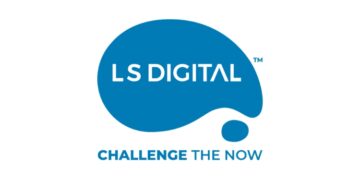At the outset, it’s important to note that every good piece of marketing does involve understanding and responding to consumer behaviour. It always has. Understanding how people behave – be it what they like, dislike, how they interact, what they buy, etc – and then catering both the product and it’s marketing accordingly has always been the cornerstone of best practices. By leveraging the power of AI, it is this bedrock of marketing that can be super charged.
The ability of AI to analyze vast amounts of data, identify patterns, and predict future behaviors has opened new avenues for marketers.
Understanding some key AI technologies relevant to Marketing
Open any food app that you use, or any OTT streaming platform, or Instagram that you were probably wiling away time on before this article, how do they manage to show you exactly the kind of food, movies, or content that you like? That’s ML (Machine Learning). Similarly, the good ladies Siri and Alexa can function because of NLP (Natural Language Processing).
On the other hand, Predictive Analytics involves using historical data, statistical algorithms, and ML techniques to identify the likelihood of future outcomes. In marketing, predictive analytics can forecast consumer behavior, enabling businesses to tailor their strategies accordingly. Retail giant Walmart uses predictive analytics to manage inventory and anticipate product demand, ensuring optimal stock levels and reducing costs.
And there are tangible results when these technologies are incorporated into marketing practices. Some of the key benefits are as below.
Hyper-personalized Content
AI enables marketers to create hyper-personalized content by analyzing consumer data and identifying individual preferences. This personalization can significantly improve user engagement and conversion rates.
For instance, Spotify uses AI to analyze user listening habits and preferences to create personalized playlists. The “Discover Weekly” playlist, which recommends new songs based on users’ listening history, has been a massive success, driving user engagement and retention.
This has also been validated in many ways. A study by Epsilon found that 80% of consumers are more likely to make a purchase when brands offer personalized experiences. That’s undisputed value in personalization.
Dynamic Pricing
This is a strategy where prices are adjusted in real-time based on demand, competition, and other factors. AI can analyze market conditions, competitor prices, and consumer behavior to optimize pricing strategies.
Uber is more infamous for making use of this in the form “surge pricing,” to adjust fares based on demand and supply. During peak times, prices increase to encourage more drivers to offer rides, ensuring availability for consumers.
Customer Experience
AI can also significantly aid in enhancing customer experiences. Chatbots, powered by NLP, can handle customer queries 24/7, providing instant support and improving customer satisfaction. Predictive analytics can anticipate customer needs, enabling proactive service and personalized recommendations.
Sephora is one brand that puts AI to very good use. They provide a Virtual Artist feature, which allows customers to try on makeup virtually using augmented reality. Additionally, Sephora’s chatbot provides personalized product recommendations and beauty advice, improving the overall shopping experience. Essentially, they are not only able to personalize the experience but also provide real time expert-backed advice to deliver customer delight.
The power of AI in behavioral marketing lies in its ability to analyze vast amounts of data, uncovering patterns and trends that drive more personalized and impactful marketing strategies. In businesses where you are only as good as your last hit, staying ahead of consumer expectations is crucial. AI provides the tools to not only meet these expectations but exceed them, creating a dynamic and engaging experience that fosters loyalty and drives growth. The future of marketing is here, and it’s powered by AI.

















